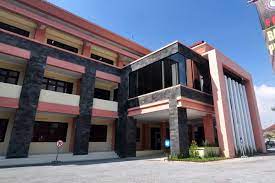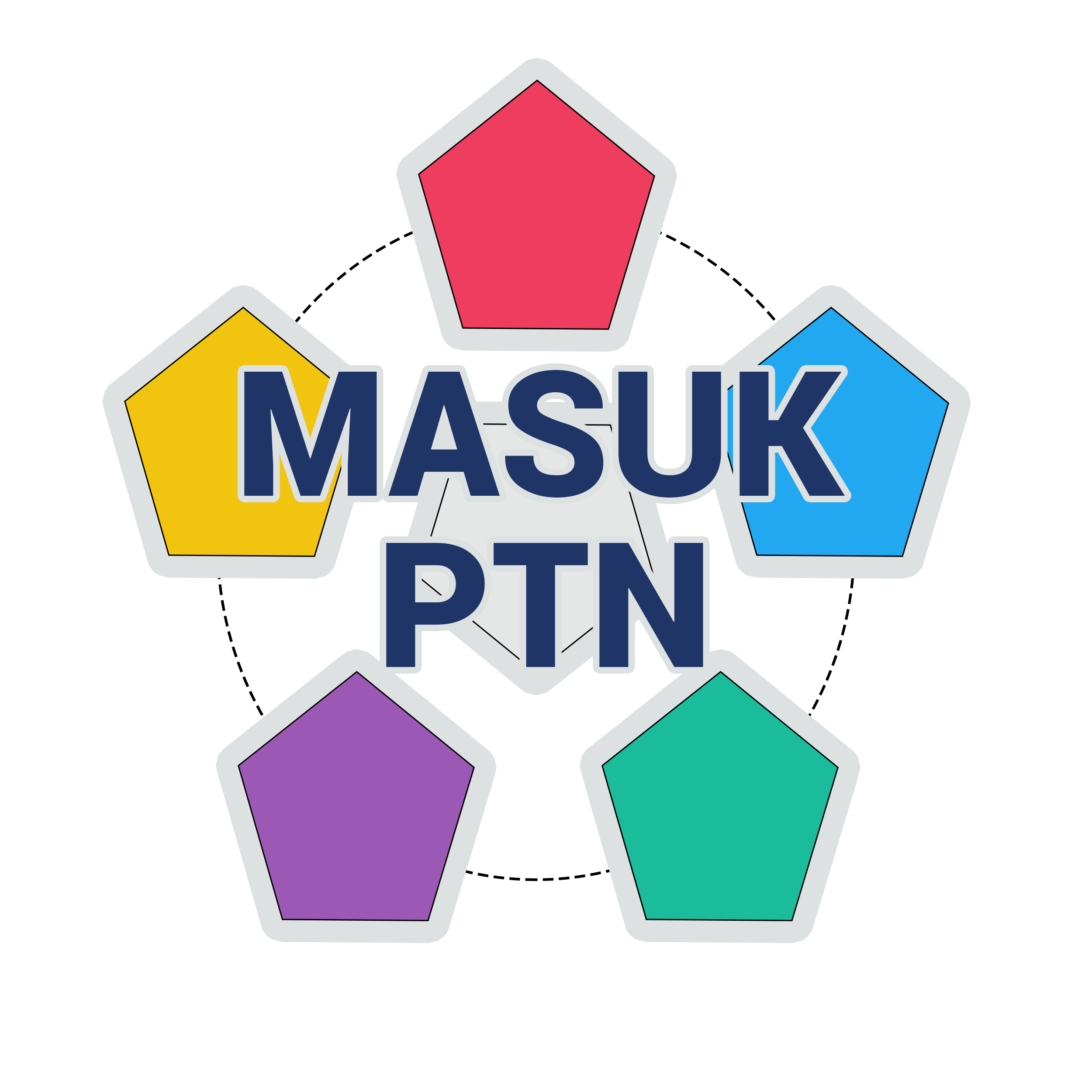SEJARAH
Economic Education Study Program (Prodi) is one of the study programs at
the Faculty of Economics (FE) Yogyakarta State University (UNY).
Economic Education Study Program was officially established on September
14, 1965 based on Presidential Decree No. 268 of 1965. Routinely, the
operational permit for the operation of this study program is renewed.
Finally, the extension of the operational permit for this study program
was granted based on the Rector's Decree No. 4255/D/T/K-N/2010.
The vision of the Economics Education Study Program FE UNY is "By 2025
to become a leading study program in Indonesia in preparing, producing
and developing professional and moral economic educator candidates who
have a populist economic perspective and have an entrepreneurial
spirit".
The development of the Economics Education Study Program at FE UNY
towards a leading study program is based on a strong philosophy, namely
ontological (nature), epistemological (way of thinking), and axiological
(value or for what). Ontologically, the development of the Economic
Education Study Program FE UNY is essentially based on Pancasila, the
1945 Constitution of the Republic of Indonesia, the Unitary State of the
Republic of Indonesia (NKRI), and Bhinneka Tunggal Ika, although in
form, content, and dynamic rhythm according to the situation. , place
and time. Therefore, all efforts taken by the Economics Education Study
Program FE UNY must produce people who believe in one God, just and
civilized humanity, unite and unite Indonesia, populist and democracy by
upholding deliberation in representation, justice and social
solidarity. patriotism to defend the dignity and integrity of the
Unitary State of the Republic of Indonesia, have a tolerant spirit
towards diversity, and are committed to the intellectual life of the
nation. Economics Education Study Program FE UNY is committed to
educating its students to have a strong Indonesian national character
(nationalism) so that later they are expected to become human beings who
have Indonesian identity, have comprehensive intelligent character, and
are actively ready to participate in building an orderly, fair, safe,
and peaceful world. .
Epistemologically, the development of the Economics Education Study
Program at FE UNY towards a leading study program basically includes the
development of Indonesian people as a whole, and the development of
science, technology, art, and sports that can sustainably prosper the
Indonesian people physically and mentally. This means that in its
development process the Economics Education Study Program FE UNY is
required to: (1) develop human beings according to their natural
abilities (creativity, taste, intention, which can be translated into
intellectual intelligence, emotional intelligence, spiritual
intelligence, adversary intelligence) and in harmony with various needs
(students, parents, community, development of various sectors and
sub-sectors, both primary, secondary, tertiary, and quarterly); (2)
develop science and technology that is beneficial for the development of
the surrounding community in particular and the Indonesian nation in
general, as well as the wider human race; and (3) improve/improve the
life of the Indonesian people and nation as well as humanity through the
dissemination of science and technology. In addition, FE UNY must be
sensitive, capable and able to respond to the future demands of the
Indonesian nation in the midst of the lives of other nations in the
world. For this reason, the development of FE UNY must be aligned with
the demands of the times. Even FE UNY is required to have
initiatives/initiatives, ways of thinking, acting, and acting that are
proactive, not only active or reactive, in developing the dignity of
students and building the nation.
A. Scientific Basis
The development of the Economics Education Study Program at FE UNY
towards a leading study program is based on a multidimensional
scientific foundation, including psychological, sociological, economic,
political, and cultural foundations. In order for the development of the
Economics Education Study Program of FE UNY to be carried out
effectively and efficiently, all efforts taken must be based on facts,
not opinions and momentary interests. This means that research and
development has an important role in the future development of the
Economics Education Study Program, FE UNY. Research and development
carried out should include two types of analysis, both positive analysis
(what actually happened impartially) and normative analysis (in favor
of improving existing practices), for example improving public
education, improving national character, and improvement of national
education policy. This can all be realized if the Economics Education
Study Program FE UNY has a structure (system), figures (HR), and a
strong scientific culture, is respected, and is supported by top
management.
B. Pedagogical Basis
The pedagogical foundation is the basis for the implementation of
education in the Economics Education Study Program, FE UNY because
education is a conscious and planned effort to create an atmosphere and
learning process that is able to explore all the comprehensive potential
of students (talents, interests, and abilities) as aas a candidate for
education staff and development of education and teacher knowledge as
well as the development of economics. The pedagogical foundation is also
the basis for the development of the learning process so that future
learning is more active, interactive, innovative, inspiring, fun,
effective, challenging, and motivates students to develop their full
comprehensive potential so that they will become educational staff and
developers of education and teacher knowledge as well as developer of
economics who believes and fears God Almighty, is independent, and
intellectual.
The economic education study program is one of the University's study programs that studies the basic concepts of economics, the basic concepts of education and learning, as well as entrepreneurship, applying it in social life and using it as a tool to solve various economic problems, analyze data and information related to problems in learning. economy, and economic problems that occur in society.
LAB
- Computer Laboratory
PROGRAM STUDI
VISION
MISI
1. Organizing learning to produce
prospective educators in the field of economic studies who are moral,
have high integrity, have pedagogic, personality, social, and
professional competencies.
2. Preparing prospective economic educators, entrepreneurs, and
activists who are superior, creative, innovative, pious, independent,
and intellectual.
3. Preparing graduates who have entrepreneurial spirit and behavior based on a populist economy and global perspective.
4. Cultivate the ability to research to develop science and technology
that can contribute to the development of the world of education and
society.
5. Practice the knowledge and skills possessed for the development of community life through community service activities
The
objective of the qualification of the economic education study program
is derived from the national education system which is adjusted to level
6 of the IQF qualification which includes the process of developing
attitudes, knowledge, special skills, and general skills. Completely the
objectives of qualification are implemented in Learning Outcomes (PLO)
which is a reduction of the Economics Education curriculum. The
description of the PLO is attached in standard 1. In addition, these
goals are also set after getting input from alumni, stakeholders,
professional associations, curriculum development teams. Specialization
in achieving the economic education study program's objectives can be
achieved by taking courses of at least 156 credits.
The Economics Education study program provides a different learning
experience from similar study programs both nationally and
internationally. In addition to having competence in educational
qualifications, experience in exploring the business world
(entrepreneurship) with a people's economic spirit based on Pancasila is
also a differentiator. The mechanism for achieving study program goals
is of course attached to the curriculum through the arrangement of
systems that have been planned in such away.
PROGRAMME OUTCOME
The study program produces graduates who
PO1: Have the ability in the field of learning planning, implementing learning methods, and evaluating economic learning outcomes
PO2: Have the ability in the field of opportunity analysis, planning, implementing plans, and evaluating business performance
PO3: Have managerial skills of cooperatives, MSMEs, and other financial institutions
PO4: Have the ability to help plan research, assistant/conduct research activities under guidance, disseminate research results in the fields of education and economics
PROGRAMME LEARNING OUTCOME
|
Aspect |
Programme Learning Outcomes of BEEd |
PO1 |
PO2 |
PO3 |
PO4 |
|
attitude |
|
√ |
√ |
√ |
√ |
|
knowledge |
|
√ |
|
|
√ |
|
|
√ |
√ |
√ |
|
|
√ |
|
|
√ |
|
|
skills |
|
√ |
|
|
|
|
|
√ |
√ |
|
|
|
|
|
√ |
|
|
|
√ |
√ |
|
√ |
|
|
√ |

 MASUK PTN
MASUK PTN